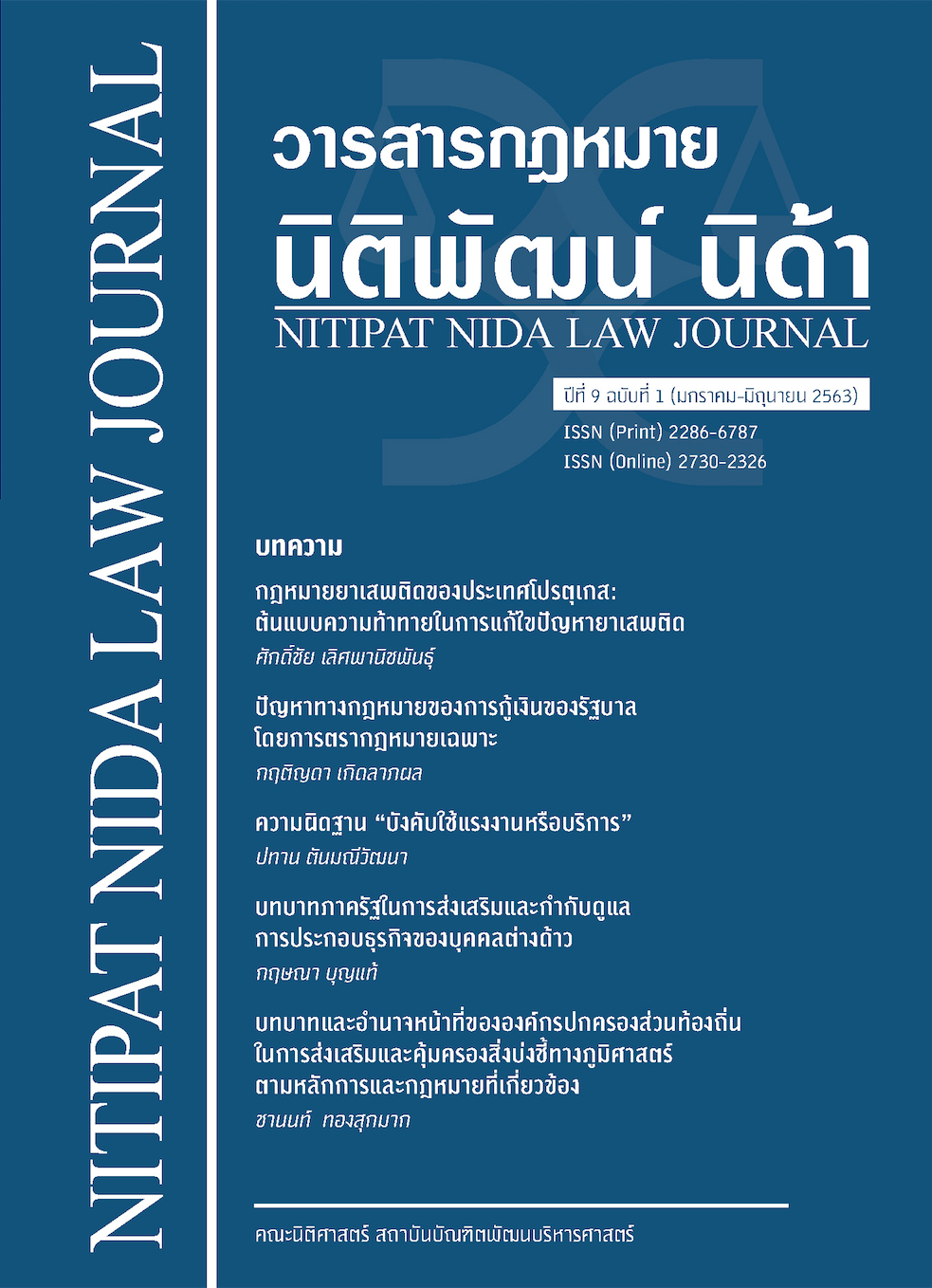The Roles of the State in the Promotion and Monitoring of Undertaking of Businesses by Foreigners
Abstract
Currently, trading and investing in Thailand by a foreigner is freely permitted only subject to conditions and restrictive covenants. A foreigner is not permitted to undertake certain types of business and for certain types of business a license must be obtained in advance. Foreign business operation is subject to the Foreign Business Act B.E. 2542 (1999) which has been enacted for almost 20 years. At present, international trading and investments or investment from overseas have grown rapidly and changed according to the economic and political situation of the country, but the most important issues are trading and investment policy and convenience on free trade in order to attract foreign investors to the country and yield the most benefit to the country.
This has inspired the study on the roles of the state in the promotion and monitoring of undertaking of businesses by foreigners in Thailand. The study has been made on the government policy, both at the levels of policy planning and implementation, governmental agencies acting as promoter and regulator, rules, regulation and conditions for a foreigner to invest, by studying from the perspectives of the laws being in force, past policy, both Thai and foreign academic principles and theories. The study has shown that the state’s role is lacking on clear government policy on promotion of foreign investment and lacking on short, medium- and long-term planning. Moreover, the government’s agency responsible for foreign investment regulating and monitoring, namely the Department of Business Development and the Foreign Business Commission, are still limited in their roles to promote foreign investment from the lacks of academic operation, available personnel, control and the restriction under the controlled business listed in the Annex of the Foreign Business Act, which imposes strict control over many types of businesses resulted in the monopoly by a few domestic capital groups. This prevents the innovative development of the country in trading and services and thus cannot keep up with fast changing situation of international trade competition. Taken those into consideration, the suggestions from this study are as follows:
The researcher suggested that The Foreign Business Act B.E. 2542 (1999) should be reviewed regarding policy and plan to promote and regulate foreign trade and investment by establishing master plan and short , immediate and long term action plan for the promotion and regulation. The amendments should also be made on the appropriate role of related government agencies. The Foreign Business Commission and Department of Business Development should work more proactively, focus on supportive role and regulate the business according to rapidly changing economic environment. Finally, free trade should be more promoted by reconsidering the list of restricted businesses in the annex of Foreign Business Act while allowing more investment opportunities by foreigners previously restricted to conduct businesses. These are to allow free trade and benefit most from therapid changes of economic circumstances, then to prepare Thai entrepreneurs for development and competition at the international levels.



